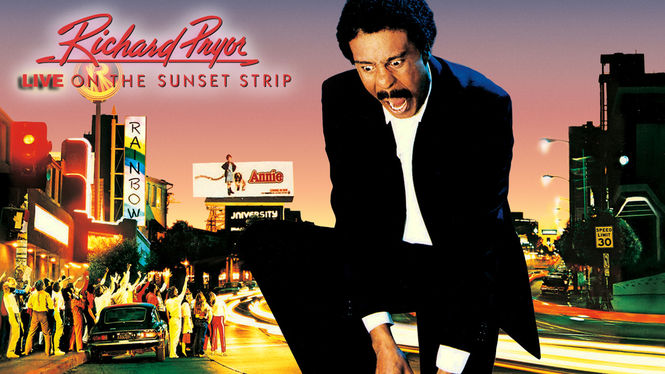I consider Richard Pryor’s Live in Concert (’79) the single best stand up special in history. But Live on the Sunset Strip is possibly more important (maybe even better, if that even makes sense). The former is God-level genius where everything (every joke, every gesture, every second) clicks into place; the latter reveals a humbled and wiser GOAT, exploring everything from a trip to Africa (and, for the first time, reckoning with his own use of the “N-word”) to a frank and hilarious (yes, hilarious) discussion of his infamous freebasing debacle (described at the time as an accident, but actually a more than half-serious suicide attempt). That Pryor can “go there” and not only turn this into material that’s neither self-conscious *or* self-pitying, and make it LOL funny is perhaps the signal testament to his gifts.
There’s a poem entitled “Richard Pryor’s Flesh” that appears in The Blackened Blues (and recently showcased by the great The Blue Mountain Review); it being the 40th anniversary of his immortal Sunset Strip gig, I wanted to attempt a tribute; it started as an essay and turned into a poem (said no one ever). Huge thanks, again, to The Decadent Review for being a home to my humble work. And never mind all this blather, which should serve as a delivery device for the key takeaway: if you’ve never enjoyed this concert, cue it up to see an American Icon at the height of their inimitable powers.
Richard Pryor on the Sunset Strip, 1982: An Exegesis
I.
Here’s the thing about saints: they’re seldom esteemed
until they die. What’s lost in the transformation from sinner
to sublime is how they ascend, immortalized for the things
we watched them achieve, often what frightens or informs us.
II.
We worship them in death in direct proportion
to how much they electrify us, while we’re alive.
III.
The suffering, we’ll say, is entirely self-inflicted—
but the gift? God given. That’s a hustle that never fails.
IV.
Point is, being a human metaphor, the thing describing
itself? That’s a burden few humans are built to bear.
V.
Don’t call it a comeback, nobody said—but we all saw
you: larger than death; that billboard on Sunset Blvd.
VI.
Not Jesus, so much (too many lesser contenders for that
peculiar crown anyway); more like Lazarus: I’ve returned
from the dead, you didn’t say, being alive your epiphany:
you were blinded, but your gift was giving sight
to those who otherwise couldn’t see the light.
VII.
Metaphor as miracle: you strode to the stage, parting
the crowd not like Moses or even Judas—just a man,
who’d outgrown the n-word and all that hocus pocus.
VIII.
You said the words we couldn’t say.
You said the words you couldn’t say.
IX.
Miracles, as Christ could attest, ain’t easy;
every soul saved causes you to die a little bit,
because not faking it is what it takes
to make them believe. Plus, you died
for your own damn sins, but you tried
to save as many would-be fools—hoping
for heaven in ways we pay for—as possible.
X.
Make no mistake: priests are employed to recycle
an inflexible script; miracle workers make it up
as they go, saying shit we only need to hear once.
XI.
Certain persuasions are taught to believe the pope
is infallible. Pryor’s conviction? He was merely perfect.
XII.
On the Strip, a Last Supper of sorts:
disciples gathered round
and The Reverend Jesse in the house,
but the only man preaching on stage,
regal in red like the pope, or a pimp—
which is the rare word that can be both
ironic and off limits, at least in mixed company.
XIII.
Those of us acquainted with the actual world
and what it does to us have a weakness
for the fallen angels, especially those brave enough
to abide, burned up but not burnt out,
their odometers dizzy from spinning so fast
(but, we know, that’s where the fuel comes from,
and you knew not to fuck around and find out
what happens when we forget what got us here).
XIV.
Look at him transform right in front of us:
a lion, a wino, a gangster, a preacher, a pipe,
a little boy—also himself, a role he was born to play
but also one he should be forgiven if,
at times, it enervated him, even as the script
wrote itself, like attorney’s fees or obituaries.
This, you didn’t say, is the story of my life.
XV.
Never mind the Devil, temptation always appears
when we’re alone in the desert. The battle’s over
the heart & mind; how it’s won is what we do with
our gift while we have it—when the lights shine
brightest, being ready for another fight that ends
in seconds or, defying faith and fate, lasts forever.

